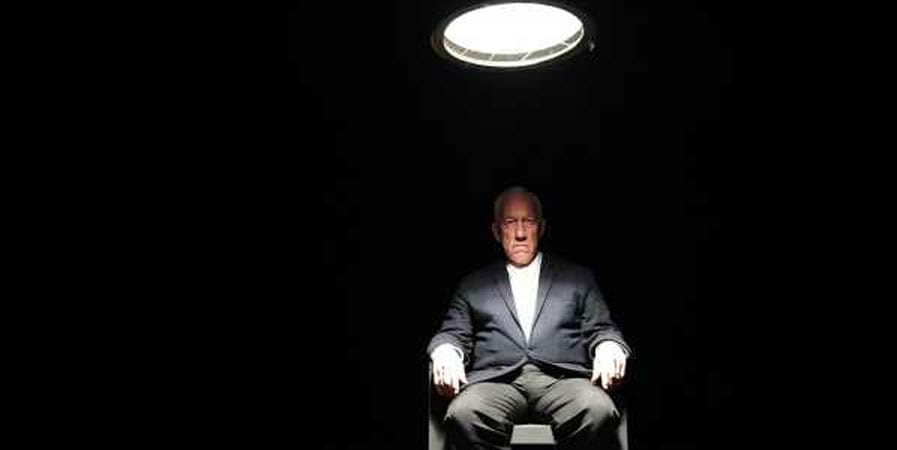Simon Callow performs as Oscar Wilde in this reading of De Profundis. The title of this letter translates to “from the depths” and it’s about Wilde’s extreme anguish at his ruinous companionship with Alfred Douglas, the addressee.
De Profundis details how Alfred Douglas, also known as ‘Bosie’, manipulated Wilde during the time they were close, forcing the playwright out of his home while emptying his pockets. Bosie leaned on Wilde for funding his champagne lifestyle, but neglected to care for Wilde as a person, being so blinded by narcissism and self-interest. Bosie’s aristocratic brand of odious vanity is what Wilde laments in this long letter.
Callow takes the epistolary and transforms it into the dramatic. He delivers the letter as a heart-wrenching monologue that decries his current imprisonment. The chaotic influence of Bosie has thrown Wilde’s life into disarray – socially, financially and artistically, he likens the situation to a cruel child destroying a beautiful toy that he fails to comprehend.
Callow sits centre stage, a bulb hanging over his head, in a bare and minimal scene that surely mimics the drabness of a prison cell. He occasionally rises from his chair in flashes of anger, but the performance is largely static. This is not to say it isn’t animated, for it is – greatly, when that combination of dejection and exasperation explodes out in the booming strength of Callow’s voice. Callow is a tremendous basso profundo, eloquent and commanding in his emotional range.
The theme of this performance is dismay. Callow is great at being mournful: Wilde’s dashed hopes of having a fruitful friendship with Bosie, one idealistically visualised as with a graceful figure in a comedy, are fully explored. Wilde is besieged from many fronts: he suffers legal attacks from Bosie’s father, mockery from the changing tides of public opinion as well as abandonment while incarcerated.
However, Callow does not play the monologue as just one note. He can often display a tender, charming and often humorous side of Wilde. Of course, Wilde was renowned for his sparkling wit and glittering conversation, but we only experience that sophistication as an echo – his reservoir of quips has been somewhat depleted by the horror of these new and claustrophobic prison circumstances.
Ripples of laughter travel through the audience, when Callow deplores the absence of upper middle-class amenities. Ever the aesthete he ponders upon muses, gods, literature and Oxford even though he is trapped in a concrete box. It is touching too to see Wilde’s care and attention: he fosters Bosie back to good health through a bout of influenza, sitting by his bedside and lavishing fine things on him in a posh Brighton hotel, yet is afterwards treated in such a vile manner.
Wilde’s trust is violated and his kindness repaid with unkindness. The show is powerful and impressive – De Profundis is a must see for any Oscar Wilde fans.

